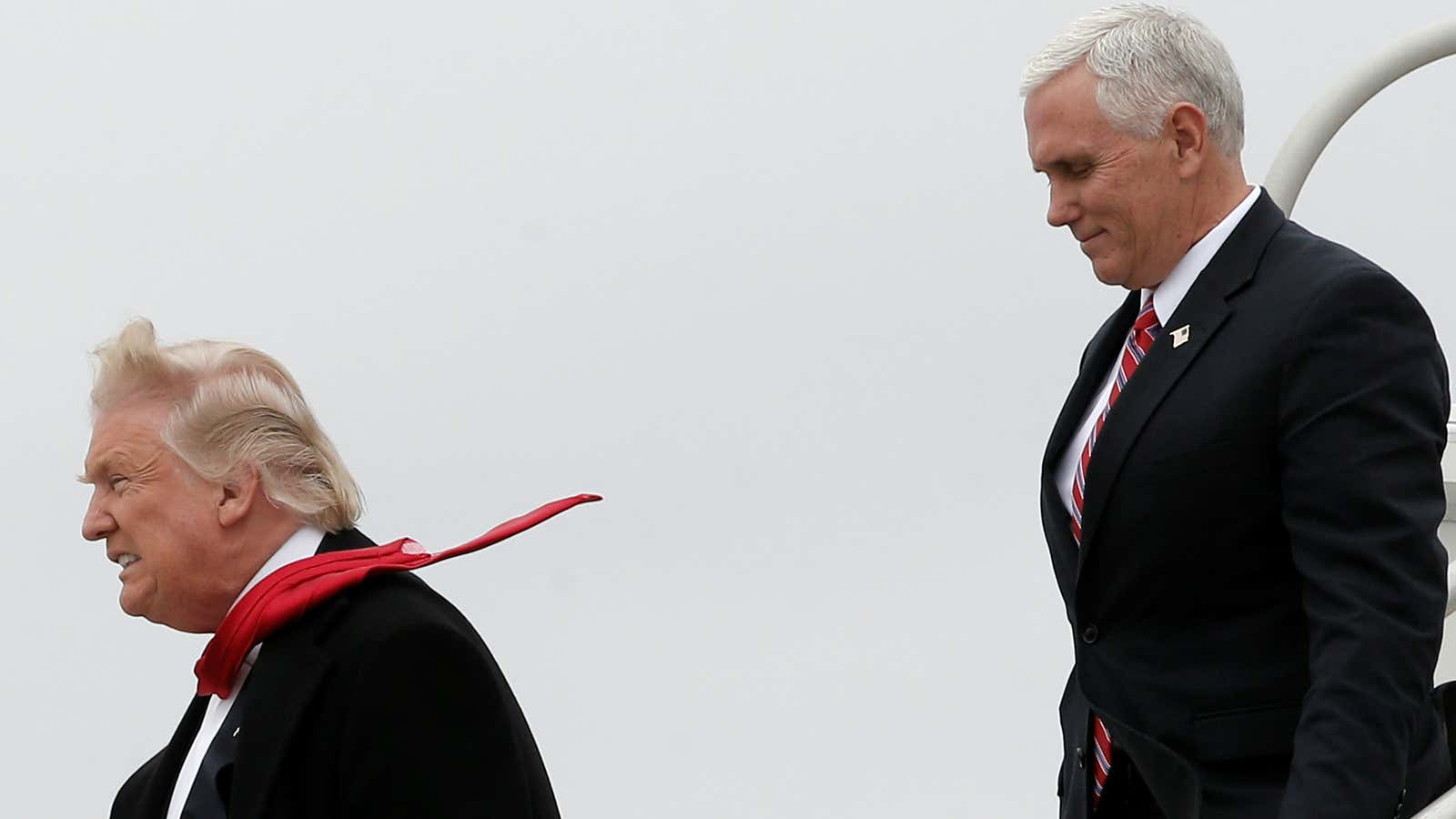President Ronald Reagan, godfather of modern Republicanism, once said, “We who live in free market societies believe that growth, prosperity and, ultimately, human fulfillment are created from the bottom up, not the government down…. Trust the people.”
Game over, Ronnie. Today’s Republicans are fed up—and are taking things in their own hands.
“The free market has been sorting it out and America’s been losing,” said Mike Pence, vice president-elect, in an interview with the New York Times (paywall).
“Every time,” chimed in Donald Trump. “Every time.”
This is remarkable—even considering these remarks came on the heels of Trump’s job-saving Carrier kabuki, in which the president-elect swooped in to prevent the air-conditioning manufacturer from shipping 1,000 jobs to Mexico.
Trump misleads the public—and possibly himself—when he holds his job-saving aloft as an example of how he’ll bring back factory jobs. For a host of reasons, arm-twisting companies, shifting costs to taxpayers, and ramping up tariffs aren’t a workable plan.
But the “free markets” remarks from Pence and Trump today put an altogether new cast on their Indiana intervention. This is way more than a PR stunt. Their statements defy Reagonomics’ reverence of privatization, deregulation, and small government that has been the existential core of the Republican party for nearly 40 years. If the GOP’s de facto leaders reject this dogma, does the party stand for anything?
But though the GOP party regulars would violently disagree, Pence kind of has a point.
The knee-jerk neoliberalism that’s guided four decades of policy has been pretty lousy for most Americans—widening wealth gaps, driving people from the workforce, saddling them with debt, and failing to educate them.
So it could be a good thing for America if Trump and Pence push their party toward accepting that growth in living standards depends on government refereeing of markets, so that resources are fairly distributed.
But this incident could also be a disturbing hint at how Trump believes the US economy works. Markets don’t allocate resources as efficiently as Reagan and the Republicans promised they would. The invisible hand is still an ineluctable force; supply and demand can’t be altered by fiat. When the government intervenes, it assigns costs to someone—no one can will those costs to disappear. Not even Donald Trump.
